One Health / One Planet – Symposium
One Health / One Planet – Symposium explores emerging research questions at the intersection of infectious disease and climate change. Structured as three moderated panel discussions, this virtual event builds on our special magazine sponsored by the Science Philanthropy Alliance and co-published with Leaps.org that dives into basic science opportunities for addressing the overlapping dilemmas of pandemics and a warming planet.
Panel Discussions with Scientist-Experts
PROTECT AND PREVENT
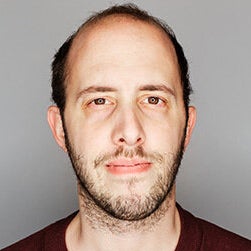 Dr. Daniel Becker, Assistant Professor of Biology, University of Oklahoma – Dr. Becker received his Ph.D. in 2017 in ecology from the University of Georgia. He then completed postdoctoral research at Montana State University on pathogen spillover before being awarded an Intelligence Community Postdoctoral Fellowship to study animal migration and infectious disease at Indiana University. He is currently an Assistant Professor of Biology at University of Oklahoma, where his research group focuses on bacterial and viral pathogens of human health and conservation significance in wild bats and birds, using a combination of field studies, molecular diagnostics, epidemiological models, and machine learning algorithms. His work has been supported by organizations including National Geographic, the National Science Foundation, the National Institutes of Health, and the Royal Society of Tropical Medicine & Hygiene and is regularly published in peer-reviewed journals such as Ecology Letters, Nature Ecology & Evolution, Proceedings of the Royal Society B, Journal of Animal Ecology, Molecular Ecology, and Lancet Microbe. Dr. Becker was awarded the Sidnie Manton Award from the British Ecological Society and is currently a Mitigating Zoonotic Threats Fellow for the Research Corporation for Science Advancement. He lives in Norman, Oklahoma with his wife and daughter.
Dr. Daniel Becker, Assistant Professor of Biology, University of Oklahoma – Dr. Becker received his Ph.D. in 2017 in ecology from the University of Georgia. He then completed postdoctoral research at Montana State University on pathogen spillover before being awarded an Intelligence Community Postdoctoral Fellowship to study animal migration and infectious disease at Indiana University. He is currently an Assistant Professor of Biology at University of Oklahoma, where his research group focuses on bacterial and viral pathogens of human health and conservation significance in wild bats and birds, using a combination of field studies, molecular diagnostics, epidemiological models, and machine learning algorithms. His work has been supported by organizations including National Geographic, the National Science Foundation, the National Institutes of Health, and the Royal Society of Tropical Medicine & Hygiene and is regularly published in peer-reviewed journals such as Ecology Letters, Nature Ecology & Evolution, Proceedings of the Royal Society B, Journal of Animal Ecology, Molecular Ecology, and Lancet Microbe. Dr. Becker was awarded the Sidnie Manton Award from the British Ecological Society and is currently a Mitigating Zoonotic Threats Fellow for the Research Corporation for Science Advancement. He lives in Norman, Oklahoma with his wife and daughter.
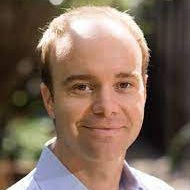 Dr. Jonah Cool, Science Program Officer, Chan Zuckerberg Initiative – Dr. Cool is a cell biologist and geneticist by training, and is currently a Science Program Officer at the Chan Zuckerberg Initiative, where he leads the organization’s Single-Cell Biology Program. The CZI Single-Cell Program actively funds single-cell biology research globally, including contributions to the Human Cell Atlas community, builds open source technology tools that enable the research community, and collaborates with the community on a variety or projects. He was an American Heart Association fellow while completing his PhD at Duke Medical Center, with a focus on the role of vascularization during cell differentiation and organ morphogenesis, and was subsequently a Ruth Kirchstein Fellow at the Salk Institute studying nuclear organization during stem cell differentiation. Dr. Cool previously worked in intellectual property litigation, as well as ran an industry research group working toward therapeutic application of 3D bioprinted human tissue. He has a deep love of cell biology and, in particular, the origins of cellular heterogeneity and how diverse cells assemble into complex tissues.
Dr. Jonah Cool, Science Program Officer, Chan Zuckerberg Initiative – Dr. Cool is a cell biologist and geneticist by training, and is currently a Science Program Officer at the Chan Zuckerberg Initiative, where he leads the organization’s Single-Cell Biology Program. The CZI Single-Cell Program actively funds single-cell biology research globally, including contributions to the Human Cell Atlas community, builds open source technology tools that enable the research community, and collaborates with the community on a variety or projects. He was an American Heart Association fellow while completing his PhD at Duke Medical Center, with a focus on the role of vascularization during cell differentiation and organ morphogenesis, and was subsequently a Ruth Kirchstein Fellow at the Salk Institute studying nuclear organization during stem cell differentiation. Dr. Cool previously worked in intellectual property litigation, as well as ran an industry research group working toward therapeutic application of 3D bioprinted human tissue. He has a deep love of cell biology and, in particular, the origins of cellular heterogeneity and how diverse cells assemble into complex tissues.
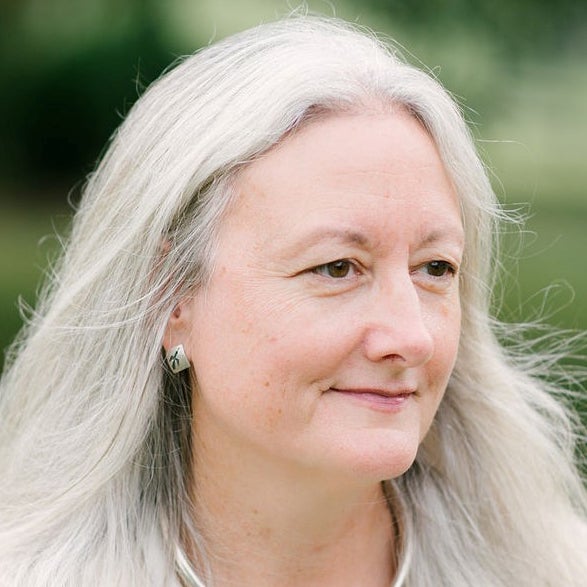 Dr. Jamie Reaser, President & CEO, Giving Voice to Resilience, LLC – Dr. Reaser has worked in more than 70 countries as a biologist, communication psychologist, and international environmental policy negotiator. She holds a Ph.D. in Biology from Stanford University and B.S. in Field Biology from the College of William and Mary. Much of Dr. Reaser’s career has focused on delivering science into the policy context. This has included science advisory roles across the U.S. Executive Branch and multiple components of the Executive Office of the President, as well as providing direction to United Nations agencies, foreign governments, and private sector leadership. She is the author of more than 100 publications at the science–policy interface across a wide range of environmental issues—amphibian declines, coral bleaching, climate change, invasive species, biosecurity, and infectious disease, among others. Dr. Reaser is particularly well-known for using her multi-disciplinary expertise and multi-sector professional network to develop solutions to seemingly intractable environmental issues. Most recently, she co-developed the Land use-induced Spillover (LUIS paradigm) for conceptualizing and strategically addressing pandemic source dynamics. Among other activities, she is in the process of establishing a multi-year project to conduct global horizon scans of zoonotic disease risk for all wildlife in U.S. trade. In addition to her science–policy pursuits, Dr. Reaser is widely-regarded as a public figure in literary circles. She is the award-winning author of more than a dozen books in poetry and prose genres.
Dr. Jamie Reaser, President & CEO, Giving Voice to Resilience, LLC – Dr. Reaser has worked in more than 70 countries as a biologist, communication psychologist, and international environmental policy negotiator. She holds a Ph.D. in Biology from Stanford University and B.S. in Field Biology from the College of William and Mary. Much of Dr. Reaser’s career has focused on delivering science into the policy context. This has included science advisory roles across the U.S. Executive Branch and multiple components of the Executive Office of the President, as well as providing direction to United Nations agencies, foreign governments, and private sector leadership. She is the author of more than 100 publications at the science–policy interface across a wide range of environmental issues—amphibian declines, coral bleaching, climate change, invasive species, biosecurity, and infectious disease, among others. Dr. Reaser is particularly well-known for using her multi-disciplinary expertise and multi-sector professional network to develop solutions to seemingly intractable environmental issues. Most recently, she co-developed the Land use-induced Spillover (LUIS paradigm) for conceptualizing and strategically addressing pandemic source dynamics. Among other activities, she is in the process of establishing a multi-year project to conduct global horizon scans of zoonotic disease risk for all wildlife in U.S. trade. In addition to her science–policy pursuits, Dr. Reaser is widely-regarded as a public figure in literary circles. She is the award-winning author of more than a dozen books in poetry and prose genres.
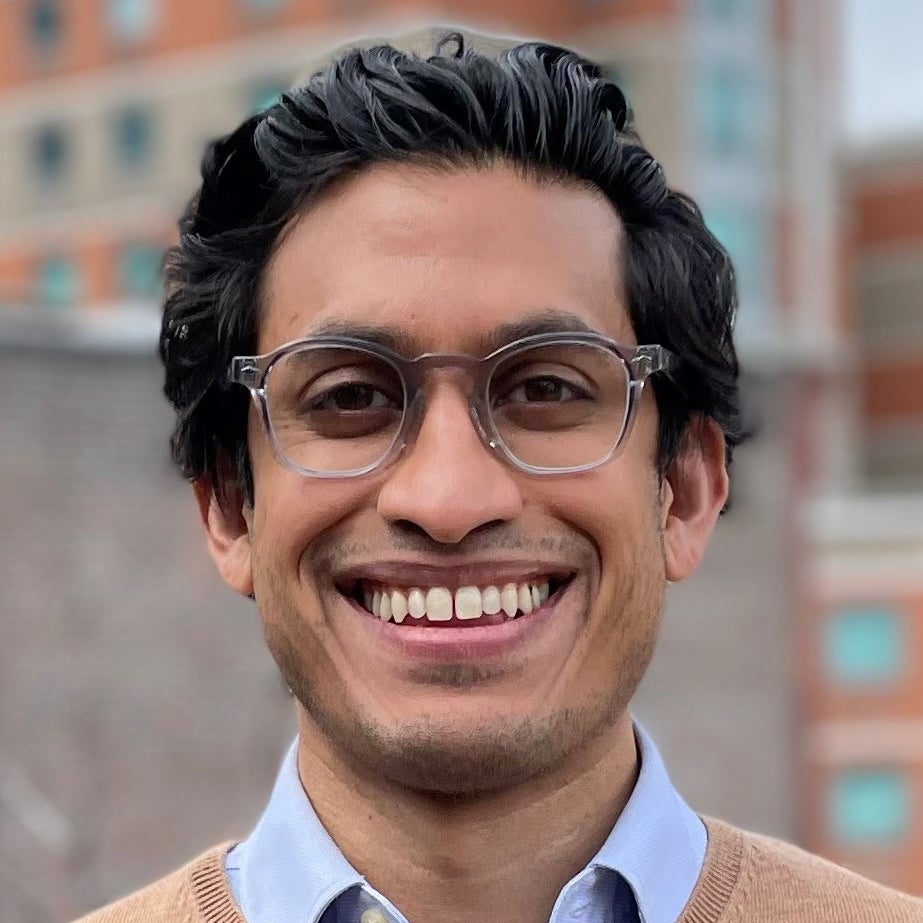 Dr. Neil Vora, Physician and Policy Fellow, Conservation International – Throughout his career, Dr. Vora has focused on the link between human health and the health of the planet—particularly as it relates to the increasing threat of “spillover” of viruses from animals to humans because of the destruction of nature. He served for nearly a decade with the U.S. Centers for Disease Control and Prevention (CDC), including as an Epidemic Intelligence Service officer and a Commander in the U.S. Public Health Service (USPHS). Dr. Vora deployed for CDC to Liberia in 2014 and to the Democratic Republic of the Congo in 2019 to assist in the responses to the two largest Ebola outbreaks ever. He previously led the investigation of a newly discovered virus in the country of Georgia related to the smallpox virus. For his work, he has received numerous accolades including the USPHS Physician Researcher of the Year Award, CDC James H. Steele Veterinary Public Health Award, CDC Donald C. Mackel Memorial Award, and CDC Alexander D. Langmuir Prize Manuscript Award. He has published over 60 articles in the New England Journal of Medicine, the Journal of the American Medical Association, The Lancet and others. He is currently an Associate Editor at CDC’s Emerging Infectious Diseases journal, an Adjunct Professor of Internal Medicine and Infectious Diseases at Columbia University, and a Term Member of the Council on Foreign Relations. He completed medical school at the University of California, San Francisco (UCSF) in 2009 and his Internal Medicine training at Columbia University in 2012.
Dr. Neil Vora, Physician and Policy Fellow, Conservation International – Throughout his career, Dr. Vora has focused on the link between human health and the health of the planet—particularly as it relates to the increasing threat of “spillover” of viruses from animals to humans because of the destruction of nature. He served for nearly a decade with the U.S. Centers for Disease Control and Prevention (CDC), including as an Epidemic Intelligence Service officer and a Commander in the U.S. Public Health Service (USPHS). Dr. Vora deployed for CDC to Liberia in 2014 and to the Democratic Republic of the Congo in 2019 to assist in the responses to the two largest Ebola outbreaks ever. He previously led the investigation of a newly discovered virus in the country of Georgia related to the smallpox virus. For his work, he has received numerous accolades including the USPHS Physician Researcher of the Year Award, CDC James H. Steele Veterinary Public Health Award, CDC Donald C. Mackel Memorial Award, and CDC Alexander D. Langmuir Prize Manuscript Award. He has published over 60 articles in the New England Journal of Medicine, the Journal of the American Medical Association, The Lancet and others. He is currently an Associate Editor at CDC’s Emerging Infectious Diseases journal, an Adjunct Professor of Internal Medicine and Infectious Diseases at Columbia University, and a Term Member of the Council on Foreign Relations. He completed medical school at the University of California, San Francisco (UCSF) in 2009 and his Internal Medicine training at Columbia University in 2012.
SILOS AND SYSTEMS
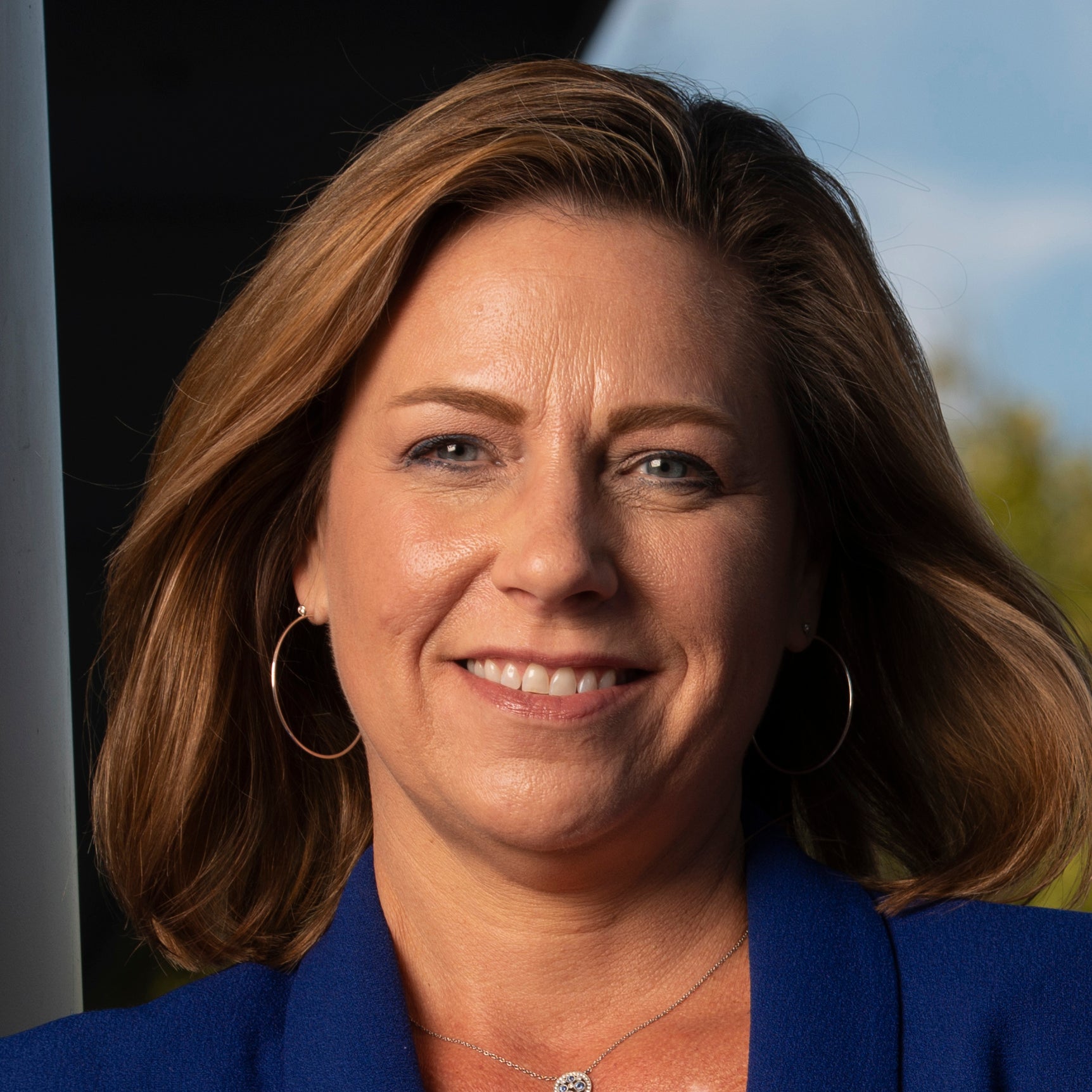 Dr. Jonna Mazet, Vice Provost, Grand Challenges, University of California, Davis – Dr. Mazet is Chancellor’s Leadership Distinguished Professor of Epidemiology and Disease Ecology and founded the One Health Institute in the UC Davis School of Veterinary Medicine, where she focused on global health problem solving, especially for emerging infectious disease and conservation challenges. Dr. Mazet is active in international One Health education, service, and research programs, most notably in relation to disease transmission among wildlife, domestic animals, and people and the ecological drivers of novel disease dynamics. Over the past decade, she was the Global Director of a greater than $200 million viral emergence early warning project, named PREDICT, that was developed with the U.S. Agency for International Development’s (USAID) Emerging Pandemic Threats Program. She was elected to the National Academy of Medicine in 2013 in recognition of her successful and innovative approach to emerging environmental and global health threats and serves on the National Academies of Science, Engineering, and Medicine’s Forum on Microbial Threats and the Academies’ One Health Action Collaborative. She was appointed to the National Academies Standing Committee on Emerging Infectious Diseases and 21st Century Health Threats, which was created to assist the federal government with critical science and policy issues related to the COVID-19 crisis and other emerging health threats.
Dr. Jonna Mazet, Vice Provost, Grand Challenges, University of California, Davis – Dr. Mazet is Chancellor’s Leadership Distinguished Professor of Epidemiology and Disease Ecology and founded the One Health Institute in the UC Davis School of Veterinary Medicine, where she focused on global health problem solving, especially for emerging infectious disease and conservation challenges. Dr. Mazet is active in international One Health education, service, and research programs, most notably in relation to disease transmission among wildlife, domestic animals, and people and the ecological drivers of novel disease dynamics. Over the past decade, she was the Global Director of a greater than $200 million viral emergence early warning project, named PREDICT, that was developed with the U.S. Agency for International Development’s (USAID) Emerging Pandemic Threats Program. She was elected to the National Academy of Medicine in 2013 in recognition of her successful and innovative approach to emerging environmental and global health threats and serves on the National Academies of Science, Engineering, and Medicine’s Forum on Microbial Threats and the Academies’ One Health Action Collaborative. She was appointed to the National Academies Standing Committee on Emerging Infectious Diseases and 21st Century Health Threats, which was created to assist the federal government with critical science and policy issues related to the COVID-19 crisis and other emerging health threats.
 Dr. Margaret McFall-Ngai, Professor and Director, Pacific Biosciences Research Center, University of Hawaii at Manoa – Dr. McFall-Ngai is the Director of the Division of Biosphere Sciences and Engineering at Carnegie Institution for Science and a Faculty Associate at California Institute of Technology. Her research group studies the role of beneficial bacteria in health using the squid-vibrio model. Dr. McFall-Ngai has also been heavily involved in promoting microbiology as the cornerstone of the field of biology. In support of this effort, she recently served at the White House during the Obama Administration on the committee for the development of the National Microbiome Initiative. She was a Moore Scholar at California Institute of Technology (2011-2013) and a Guggenheim fellow (2010), is a Howard Hughes Medical Institute Professor, and is a fellow of the American Academy of Microbiology (2002), the American Academy of Arts and Sciences (2011), and the National Academy of Sciences (2014).
Dr. Margaret McFall-Ngai, Professor and Director, Pacific Biosciences Research Center, University of Hawaii at Manoa – Dr. McFall-Ngai is the Director of the Division of Biosphere Sciences and Engineering at Carnegie Institution for Science and a Faculty Associate at California Institute of Technology. Her research group studies the role of beneficial bacteria in health using the squid-vibrio model. Dr. McFall-Ngai has also been heavily involved in promoting microbiology as the cornerstone of the field of biology. In support of this effort, she recently served at the White House during the Obama Administration on the committee for the development of the National Microbiome Initiative. She was a Moore Scholar at California Institute of Technology (2011-2013) and a Guggenheim fellow (2010), is a Howard Hughes Medical Institute Professor, and is a fellow of the American Academy of Microbiology (2002), the American Academy of Arts and Sciences (2011), and the National Academy of Sciences (2014).
 Dr. Jonathan Sleeman, Center Director, OIE National Focal Point for Wildlife for the United States, USGS, National Wildlife Health Center – Dr. Sleeman leads a team to advance wildlife health science for the benefit of animals, humans, and the environment through multidisciplinary research and technical assistance to federal, state, and tribal agencies as well as internationally. He is also an Adjunct Professor at the University of Wisconsin, School of Veterinary Medicine. He has authored over 60 peer-reviewed publications and several book chapters all on the topics of wildlife and ecosystem health. He is active in various scientific organizations, including the Wildlife Disease Association and Ecohealth International, and serves on the OIE’s Working Group on Wildlife. He is board certified by the American College of Zoological Medicine and received his veterinary degree and master’s degree in zoology from the University of Cambridge, England. Previous positions include Director of the Mountain Gorilla Veterinary Center in Rwanda and Wildlife Veterinarian for the Virginia Department of Game and Inland Fisheries.
Dr. Jonathan Sleeman, Center Director, OIE National Focal Point for Wildlife for the United States, USGS, National Wildlife Health Center – Dr. Sleeman leads a team to advance wildlife health science for the benefit of animals, humans, and the environment through multidisciplinary research and technical assistance to federal, state, and tribal agencies as well as internationally. He is also an Adjunct Professor at the University of Wisconsin, School of Veterinary Medicine. He has authored over 60 peer-reviewed publications and several book chapters all on the topics of wildlife and ecosystem health. He is active in various scientific organizations, including the Wildlife Disease Association and Ecohealth International, and serves on the OIE’s Working Group on Wildlife. He is board certified by the American College of Zoological Medicine and received his veterinary degree and master’s degree in zoology from the University of Cambridge, England. Previous positions include Director of the Mountain Gorilla Veterinary Center in Rwanda and Wildlife Veterinarian for the Virginia Department of Game and Inland Fisheries.
 Dr. Neil Vora, Physician and Policy Fellow, Conservation International – Throughout his career, Dr. Vora has focused on the link between human health and the health of the planet—particularly as it relates to the increasing threat of “spillover” of viruses from animals to humans because of the destruction of nature. He served for nearly a decade with the U.S. Centers for Disease Control and Prevention (CDC), including as an Epidemic Intelligence Service officer and a Commander in the U.S. Public Health Service (USPHS). Dr. Vora deployed for CDC to Liberia in 2014 and to the Democratic Republic of the Congo in 2019 to assist in the responses to the two largest Ebola outbreaks ever. He previously led the investigation of a newly discovered virus in the country of Georgia related to the smallpox virus. For his work, he has received numerous accolades including the USPHS Physician Researcher of the Year Award, CDC James H. Steele Veterinary Public Health Award, CDC Donald C. Mackel Memorial Award, and CDC Alexander D. Langmuir Prize Manuscript Award. He has published over 60 articles in the New England Journal of Medicine, the Journal of the American Medical Association, The Lancet and others. He is currently an Associate Editor at CDC’s Emerging Infectious Diseases journal, an Adjunct Professor of Internal Medicine and Infectious Diseases at Columbia University, and a Term Member of the Council on Foreign Relations. He completed medical school at the University of California, San Francisco (UCSF) in 2009 and his Internal Medicine training at Columbia University in 2012.
Dr. Neil Vora, Physician and Policy Fellow, Conservation International – Throughout his career, Dr. Vora has focused on the link between human health and the health of the planet—particularly as it relates to the increasing threat of “spillover” of viruses from animals to humans because of the destruction of nature. He served for nearly a decade with the U.S. Centers for Disease Control and Prevention (CDC), including as an Epidemic Intelligence Service officer and a Commander in the U.S. Public Health Service (USPHS). Dr. Vora deployed for CDC to Liberia in 2014 and to the Democratic Republic of the Congo in 2019 to assist in the responses to the two largest Ebola outbreaks ever. He previously led the investigation of a newly discovered virus in the country of Georgia related to the smallpox virus. For his work, he has received numerous accolades including the USPHS Physician Researcher of the Year Award, CDC James H. Steele Veterinary Public Health Award, CDC Donald C. Mackel Memorial Award, and CDC Alexander D. Langmuir Prize Manuscript Award. He has published over 60 articles in the New England Journal of Medicine, the Journal of the American Medical Association, The Lancet and others. He is currently an Associate Editor at CDC’s Emerging Infectious Diseases journal, an Adjunct Professor of Internal Medicine and Infectious Diseases at Columbia University, and a Term Member of the Council on Foreign Relations. He completed medical school at the University of California, San Francisco (UCSF) in 2009 and his Internal Medicine training at Columbia University in 2012.
RESILIENCE THROUGH RELATIONSHIPS
 Dr. Chris Jerde, Assistant Researcher, Marine Science Institute, University of California, Santa Barbra – Dr. Jerde grew up fishing and camping among the prairie pothole lakes of northeastern South Dakota and completed his B.Sc. (1998) and M.Sc. (2002) at Montana State University, surrounded by wilderness and trout. While Montana cultivated a keen interest in ecology, his experiences studying bison population dynamics motivated him to build a broader quantitative background. He migrated north to the Centre for Mathematical Biology at the University of Alberta, where he completed his Ph.D. (2008). With his interdisciplinary colleagues in 2011, he developed an environmental DNA (eDNA) surveillance program for invasive species, most notably Bighead and Silver Carp. The genetic surveillance approaches for the early detection of invasive fish can also be used to monitor zoonotic pathogens in the environment. As a data scientist and quantitative ecologist at the University of California Santa Barbara, he uses high-throughput DNA sequencing approaches and evidential statistics to find incipient invasive species, elusive threatened and endangered species, and zoonotic pathogens in our environment. His research program aims to improve the measurement and monitoring of global biodiversity change using advances in technology, communication, and data analysis.
Dr. Chris Jerde, Assistant Researcher, Marine Science Institute, University of California, Santa Barbra – Dr. Jerde grew up fishing and camping among the prairie pothole lakes of northeastern South Dakota and completed his B.Sc. (1998) and M.Sc. (2002) at Montana State University, surrounded by wilderness and trout. While Montana cultivated a keen interest in ecology, his experiences studying bison population dynamics motivated him to build a broader quantitative background. He migrated north to the Centre for Mathematical Biology at the University of Alberta, where he completed his Ph.D. (2008). With his interdisciplinary colleagues in 2011, he developed an environmental DNA (eDNA) surveillance program for invasive species, most notably Bighead and Silver Carp. The genetic surveillance approaches for the early detection of invasive fish can also be used to monitor zoonotic pathogens in the environment. As a data scientist and quantitative ecologist at the University of California Santa Barbara, he uses high-throughput DNA sequencing approaches and evidential statistics to find incipient invasive species, elusive threatened and endangered species, and zoonotic pathogens in our environment. His research program aims to improve the measurement and monitoring of global biodiversity change using advances in technology, communication, and data analysis.
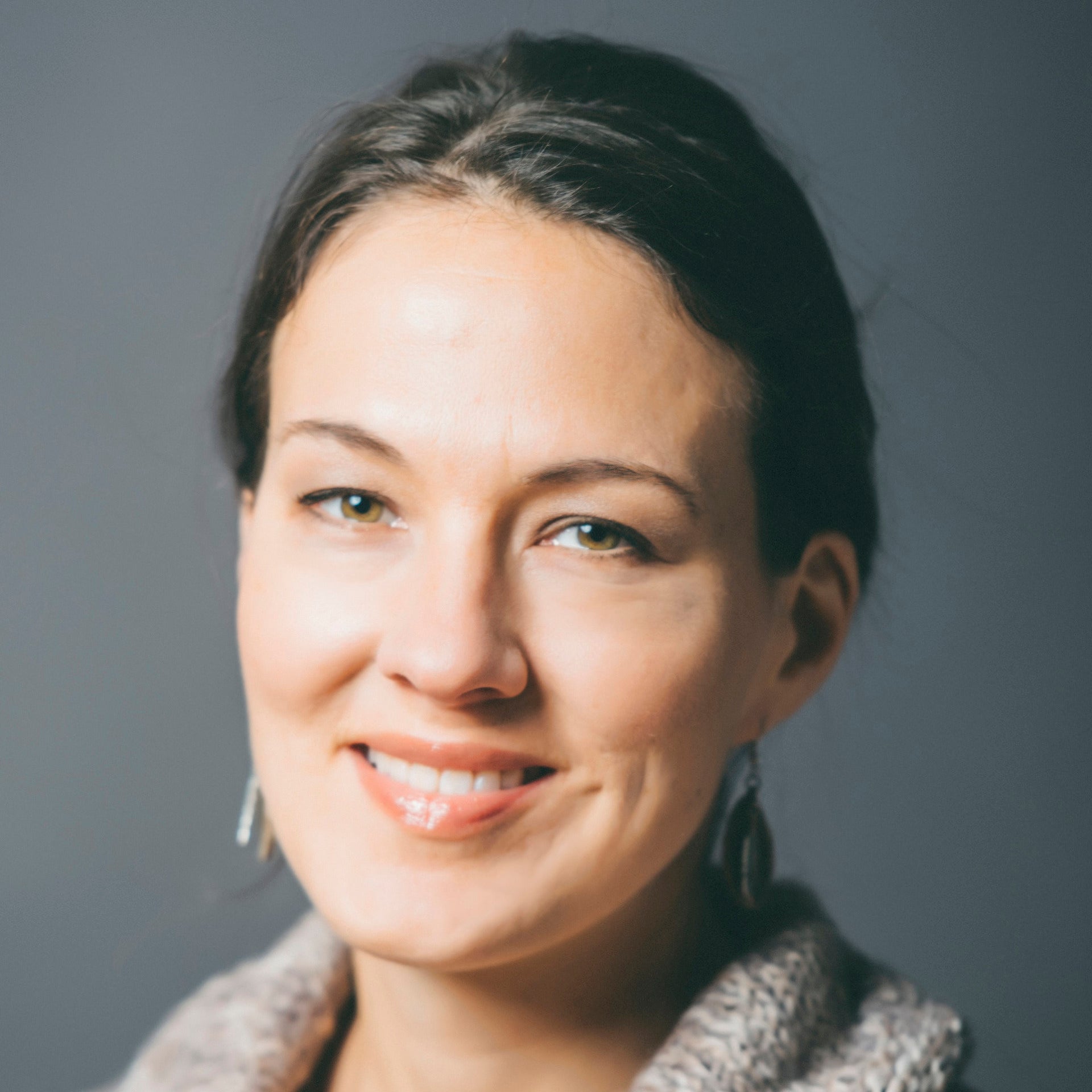 Dr. Nicole Redvers, Assistant Professor of Indigenous Health and Family & Community Medicine, University of North Dakota – Redvers is a member of the Deninu K’ue First Nation in Denendeh (NWT, Canada) and has worked with Indigenous patients, scholars, and communities around the globe her entire career. She is an assistant professor in the Department of Family and Community Medicine and the Department of Indigenous Health at the University of North Dakota where she helped develop and launch the first Indigenous health Ph.D. program. Dr. Redvers is co-founder and current board chair of the Canadian charity the Arctic Indigenous Wellness Foundation based in Yellowknife, NWT, providing traditional Indigenous-rooted Land-based wellness supports to northerners. She has been actively involved at regional, national, and international levels promoting the inclusion of Indigenous perspectives in both human and planetary health research and practice. She is author of the trade paperback book titled, The Science of the Sacred: Bridging Global Indigenous Medicine Systems and Modern Scientific Principles.
Dr. Nicole Redvers, Assistant Professor of Indigenous Health and Family & Community Medicine, University of North Dakota – Redvers is a member of the Deninu K’ue First Nation in Denendeh (NWT, Canada) and has worked with Indigenous patients, scholars, and communities around the globe her entire career. She is an assistant professor in the Department of Family and Community Medicine and the Department of Indigenous Health at the University of North Dakota where she helped develop and launch the first Indigenous health Ph.D. program. Dr. Redvers is co-founder and current board chair of the Canadian charity the Arctic Indigenous Wellness Foundation based in Yellowknife, NWT, providing traditional Indigenous-rooted Land-based wellness supports to northerners. She has been actively involved at regional, national, and international levels promoting the inclusion of Indigenous perspectives in both human and planetary health research and practice. She is author of the trade paperback book titled, The Science of the Sacred: Bridging Global Indigenous Medicine Systems and Modern Scientific Principles.
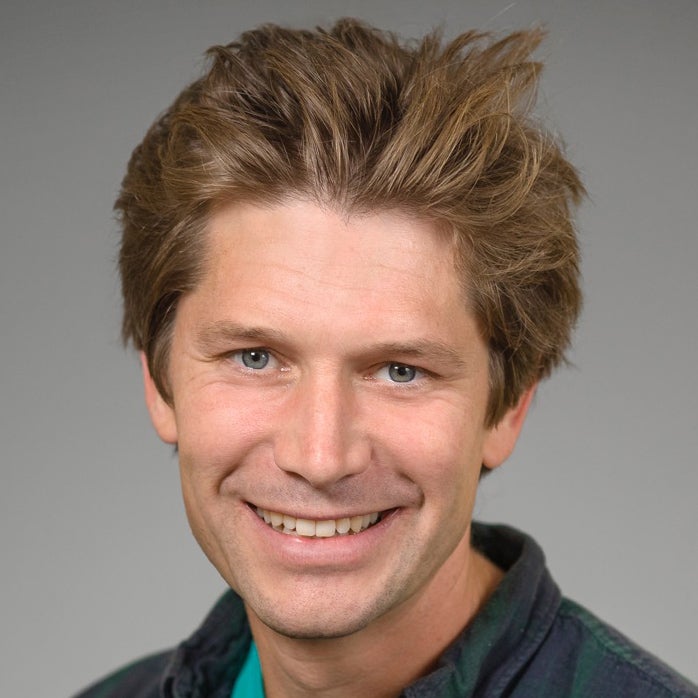 Dr. Joacim Rocklöv, Alexander von Humboldt Professor, Heidelberg University, Germany – Dr. Rocklöv is Alexander von Humboldt Professor at Heidelberg University, Germany. He is trained as a modeler and epidemiologist. His research entangles on the inter-connectedness between biological and social systems, climate change, and infectious diseases. At Heidelberg University he has a bridge chair at the Heidelberg institute of global health and the interdisciplinary center for scientific computing. He is also a guest professor in epidemiology at Umeå University, Sweden.
Dr. Joacim Rocklöv, Alexander von Humboldt Professor, Heidelberg University, Germany – Dr. Rocklöv is Alexander von Humboldt Professor at Heidelberg University, Germany. He is trained as a modeler and epidemiologist. His research entangles on the inter-connectedness between biological and social systems, climate change, and infectious diseases. At Heidelberg University he has a bridge chair at the Heidelberg institute of global health and the interdisciplinary center for scientific computing. He is also a guest professor in epidemiology at Umeå University, Sweden.
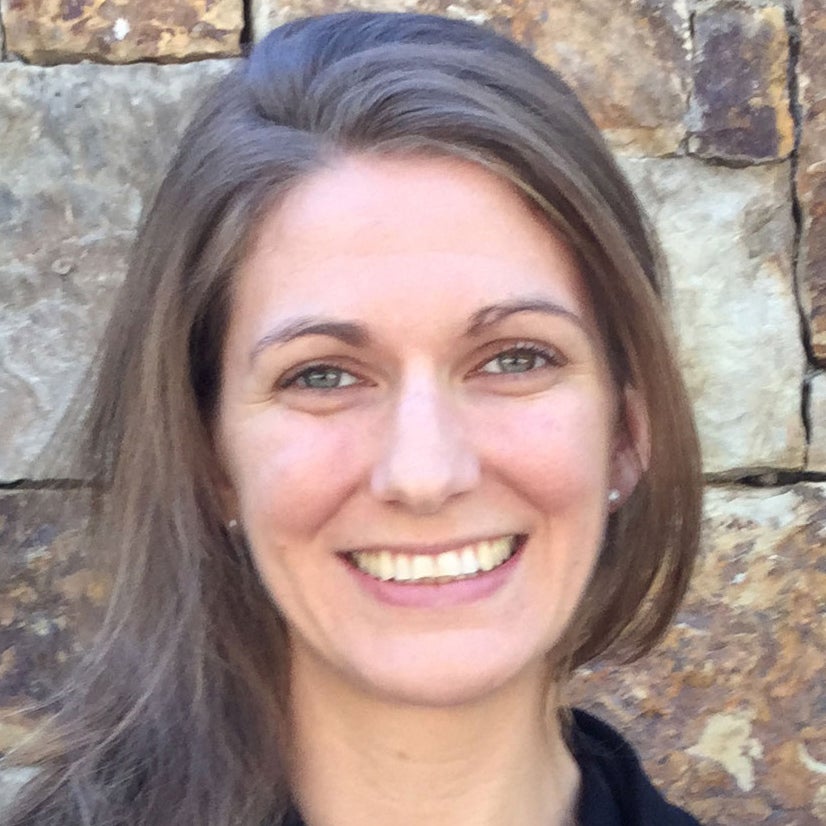 Dr. Cecilia Sorensen, Associate Professor of Environmental Health Sciences, Director of Global Consortium on Climate and Health Education, Columbia University Medical Center – Dr. Sorensen received her Doctor of Medicine from Drexel University College of Medicine and completed a four-year emergency medicine residency at Denver Health. Following residency training, she completed a two-year fellowship in climate change and human health policy with the National Institute of Environmental Health Sciences (NIEHS). Her work focuses on the intersection of climate change and health and how policy solutions, clinical action, and education can build resilience in vulnerable communities. She currently serves on the working group for the National Academy of Medicine’s Climate and Human Health Initiative. She was an author for the U.S. Fourth National Climate Assessment and serves as a technical advisor for the Lancet Countdown on Health and Climate Change Brief for the U.S. She is the co-editor of the textbook Climate Change and Human Health: From Science to Practice.
Dr. Cecilia Sorensen, Associate Professor of Environmental Health Sciences, Director of Global Consortium on Climate and Health Education, Columbia University Medical Center – Dr. Sorensen received her Doctor of Medicine from Drexel University College of Medicine and completed a four-year emergency medicine residency at Denver Health. Following residency training, she completed a two-year fellowship in climate change and human health policy with the National Institute of Environmental Health Sciences (NIEHS). Her work focuses on the intersection of climate change and health and how policy solutions, clinical action, and education can build resilience in vulnerable communities. She currently serves on the working group for the National Academy of Medicine’s Climate and Human Health Initiative. She was an author for the U.S. Fourth National Climate Assessment and serves as a technical advisor for the Lancet Countdown on Health and Climate Change Brief for the U.S. She is the co-editor of the textbook Climate Change and Human Health: From Science to Practice.
PANEL MODERATOR
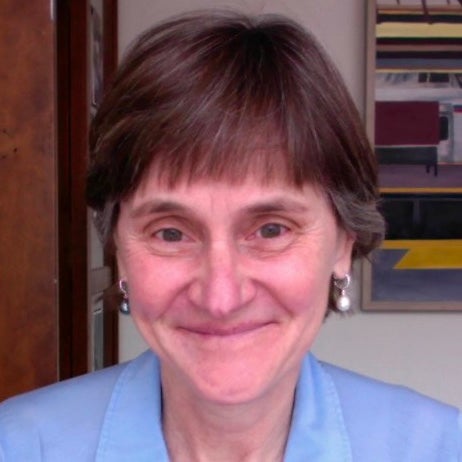 Jenni Punt, VMD, PhD, is an immunologist who has spent most of her career integrating research and teaching. A Biology Professor at Haverford College for eighteen years, she collaborated with undergraduates to understand the molecular and cellular basis for cell fate decisions during T cell and hematopoietic stem cell development. An Associate Dean for Student Research at Columbia University’s School of Physicians and Surgeons from 2013-2015, she was the founding director of an MD/MSc dual degree program focused on interdisciplinary medical scholarship – and continued to investigate the regulation of cell fate with students in the laboratory. Tempted back to University of Pennsylvania’s School of Veterinary Medicine in 2017, she is now the Associate Dean of One Health and Professor of Immunology in the Pathobiology Department. With the help of an innovative team, she is working to develop interprofessional educational programs that provide our new generation of leaders with skills needed to address complex challenges that impact human, animal, and environmental health. She continues to teach at all levels and collaborate with students in the laboratory, where they are currently working to understand the relationship between immune cell activity and animal welfare.
Jenni Punt, VMD, PhD, is an immunologist who has spent most of her career integrating research and teaching. A Biology Professor at Haverford College for eighteen years, she collaborated with undergraduates to understand the molecular and cellular basis for cell fate decisions during T cell and hematopoietic stem cell development. An Associate Dean for Student Research at Columbia University’s School of Physicians and Surgeons from 2013-2015, she was the founding director of an MD/MSc dual degree program focused on interdisciplinary medical scholarship – and continued to investigate the regulation of cell fate with students in the laboratory. Tempted back to University of Pennsylvania’s School of Veterinary Medicine in 2017, she is now the Associate Dean of One Health and Professor of Immunology in the Pathobiology Department. With the help of an innovative team, she is working to develop interprofessional educational programs that provide our new generation of leaders with skills needed to address complex challenges that impact human, animal, and environmental health. She continues to teach at all levels and collaborate with students in the laboratory, where they are currently working to understand the relationship between immune cell activity and animal welfare.